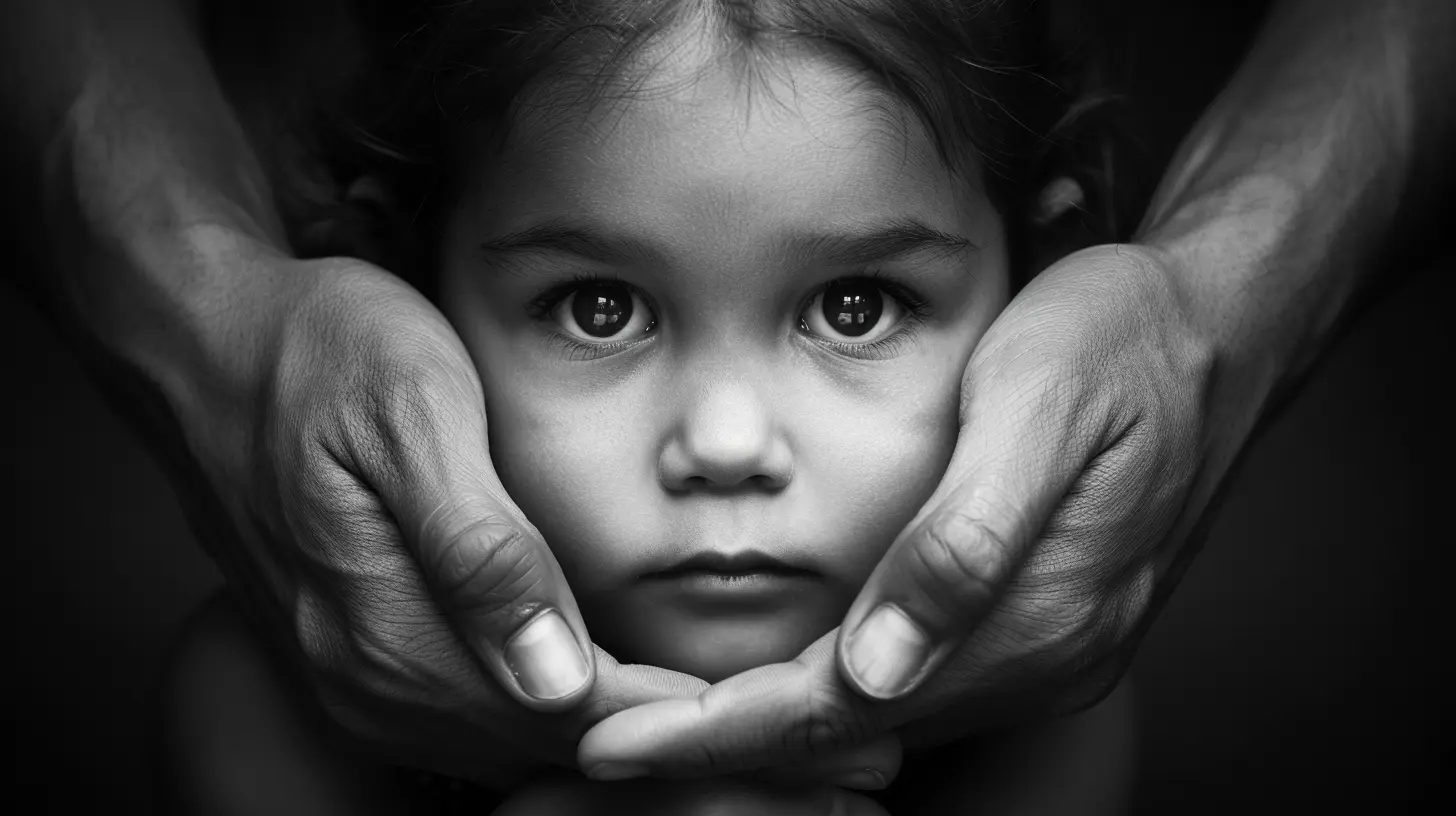The Effects of Overparenting on Child Development
22 August 2025
Ever heard the phrase “helicopter parenting”? Maybe you've caught yourself saying, “I just want the best for my child,” as you hover over their every move. Trust me, you're not alone. Parenting is a wild ride, and wanting to protect our kids is built into our DNA. But what if too much protection—or too much anything—is doing more harm than good?
Let’s dive into the world of overparenting: what it is, why it's happening, and more importantly, how it shapes the people our kids become.

What is Overparenting, Anyway?
Overparenting, often called helicopter parenting or snowplow parenting, is when moms, dads, or caregivers get a little too involved in their child’s life. We’re not just talking about helping with homework or driving them to soccer practice. We're talking about micromanaging everything—from friendships and emotions to experiences and failures.It comes from a good place. You love your kid. You want to keep them safe and set them up for success. But when parents constantly swoop in to fix problems or prevent discomfort, kids miss out on valuable life lessons. Real growth happens in those messy, unpredictable moments—like learning how to handle a bully, getting a bad grade, or sorting out a scheduling conflict.

Signs You Might Be Overparenting
Let’s get real for a second. Are you an overparent? You might be if you:- Do your child’s homework or hover over them while they do it.
- Intervene with teachers, coaches, or friends at the first sign of trouble.
- Make all decisions for your child, from clothing to hobbies to classes.
- Prevent your child from facing challenges or failing at anything.
- Feel anxiety when your child is unsupervised or making choices on their own.
Sound familiar? Don’t panic. We’re all just trying our best. The goal here isn’t to point fingers—it’s to raise awareness and maybe make a few mindful tweaks.

Why Are Parents Overparenting More Than Ever?
It’s not just you. Overparenting is everywhere. So what's fueling this growing trend?1. Fear of Failure
In today’s hyper-competitive world, success feels like a race. Good grades, top schools, scholarships—it all seems so urgent. Parents often fear their kids won't keep up, so they step in and take control.2. Social Media Pressure
Instagram and Facebook are like highlight reels of perfect parenting. When we see other moms and dads sharing photos of their kid’s third language class or science fair win, the pressure to measure up becomes real.3. Safety Concerns
Let’s face it—there’s a lot of scary stuff on the news. Even if crime rates are lower than a few decades ago, many parents feel the world is more dangerous. That can lead to extreme caution and constant supervision.
The Psychological Impact on Children
So, what happens to kids who are overparented? Quite a bit, actually—and most of it isn’t good. Let’s break it down.1. Low Self-Esteem and Lack of Confidence
When parents do everything for their kids, it sends a subtle message: “I don’t think you can do this on your own.” Over time, kids start to believe that. They may doubt their abilities, hesitate to take chances, and fear failure.Think of confidence like a muscle. If it's never used, it doesn’t grow.
2. Poor Coping Skills
Life's full of curveballs. But kids who have been shielded from failure or discomfort often panic when things don’t go their way. They struggle with frustration, anxiety, and stress. Why? Because they've never been allowed to practice those emotions.3. Dependency
One of the biggest problems with overparenting is that it creates dependency. Kids rely on their parents to make decisions or solve problems, even when they're old enough to handle things themselves.Imagine a bird that never gets to flap its wings. How will it ever learn to fly?
4. Entitlement
Overparented kids may grow up feeling entitled. If parents always jump in to make life easier, children may expect the same treatment from teachers, bosses, or even friends. And when that doesn't happen (because, spoiler alert, it won’t), frustration follows.5. Increased Anxiety and Depression
Multiple studies have linked overparenting to mental health issues like anxiety and depression. Kids feel pressure to meet unrealistically high standards and fear disappointing their parents. When they're not allowed to fail or make mistakes, the weight of perfectionism can be crushing.The Long-Term Consequences
The effects of overparenting don’t magically disappear at age 18. In fact, they're often most visible during high school, college, and early adulthood.College Struggles
Many overparented teens arrive at college unprepared. They may lack basic skills like doing laundry, managing time, or resolving conflicts. Without mom and dad nearby to guide every step, they can feel overwhelmed and lost.Career Hurdles
In the workplace, independence and resilience are key. Young adults who’ve never made a tough decision or handled criticism may struggle in professional settings. They may need hand-holding or have unrealistic expectations about workplace dynamics.Relationship Issues
Healthy relationships require communication, compromise, and emotional intelligence. Overparented individuals may struggle with boundaries, conflict resolution, or even basic social skills—all vital for romantic and platonic relationships.
How to Break the Cycle of Overparenting
Okay, so we’ve covered the problem. Now let's talk solutions. The good news? It’s never too late to take a step back and empower your child.1. Let Them Fail (Seriously)
This one’s tough—but so important. Kids learn resilience by stumbling and getting back up. Let them forget their homework, lose a soccer game, or navigate a tricky friendship. Be there to support them, but resist the urge to fix everything.2. Encourage Problem-Solving
When your child faces a challenge, try asking, “What do you think you should do?” Help them brainstorm, but let them make the choice. This builds confidence and critical thinking.3. Give Age-Appropriate Freedom
Start small. Let your child pick out their clothes, pack their lunch, or manage their schedule. As they grow older, gradually increase their responsibilities. Trust builds independence.4. Model Healthy Behavior
Kids watch everything we do. Show them how you handle stress, admit mistakes, and bounce back from failures. Be the example you want them to follow.5. Focus on Effort, Not Outcomes
Celebrate the process, not just the result. Whether it's a B on a tough math test or a failed science experiment, acknowledge the effort behind it. This helps kids develop a growth mindset.The Fine Line Between Involved and Overinvolved
So where’s the line? How do you stay engaged without overstepping?It’s all about balance. Kids need guidance, love, and support—but they also need room to grow, stumble, and figure things out. Think of yourself as a coach, not a puppeteer. Be in their corner, not at the center of their every move.
Ask Yourself:
- Am I solving this because my child can’t, or because it’s easier if I do?- Do I trust my child’s ability to make this decision?
- Is my involvement helping them grow, or holding them back?
Your answers might surprise you.
Final Thoughts
Overparenting isn’t about being a bad parent—it’s often about being too good. But the truth is, parenting isn’t about controlling the outcome. It’s about preparing our kids for life without us calling every play.When we let go (just a little), something amazing happens. Kids rise to the challenge. They grow, they try, they fail, they learn—and they become capable, resilient humans in the process.
So breathe. Step back. And give your child the gift of trusting them.
The world’s tough, sure—but so are they.
all images in this post were generated using AI tools
Category:
ParentingAuthor:

Jenna Richardson
Discussion
rate this article
1 comments
Sierra Shaffer
Overparenting: because who needs childhood independence when you can have a personal assistant for every snack decision!
September 10, 2025 at 2:35 AM

Jenna Richardson
Thank you for your humorous take! It highlights a key concern: overparenting can hinder a child's ability to make independent decisions, ultimately impacting their development and self-confidence.


